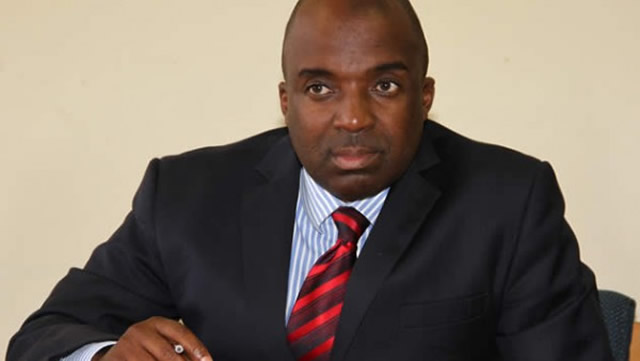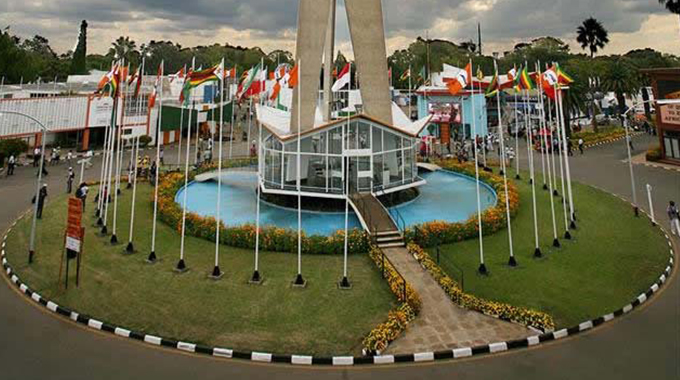Day of the African Child: Reflection on the plight of children
Factmore Dzobo Senior Reporter
IN a socio-economic environment dominated by poverty, economic and socio-political instability, the African child is usually subjected to many social ills.
On Monday, Africa commemorated the International Day of the African Child, which is celebrated on June 16 every year since 1991 after a proclamation by the Organisation of African Unity (now African Union).
The day is celebrated in honour of school children who were massacred by apartheid South Africa on June 16, 1976, after they took to the streets protesting against inferior quality of their education and demanded their collective right to be taught in their own language instead of Afrikaans.
While Zimbabweans joined other countries to mark the Day of African Child, it is disappointing to note that not much has been done to address the plight of the children in the country and in the region at large.
The day whose theme was “A child-friendly, quality, free and compulsory education for all children in Africa” comes at a time when many children are grappling with a myriad of challenges.
Children are being robbed of their rights. The recent abduction of children by Boko Haram in Nigeria calls for Africa to protect children’s rights. However, children are not only abused in war situations, in fact there are many practices in some African societies which violate children’s rights in their day to day living. It is disturbing to note that many children are being robbed of their rights through heinous practices chiefly; child trafficking, child labour, child marriages and sexual abuse. All these social ills are deeply rooted in different African societies and cultures. This shows that society still has a long way to go in terms of preventing child abuse and it will take some time for positive change to be seen.
As Africa celebrates the day each year, it is very important for governments to reflect on these challenges that affect children in their everyday lives.
According to 2012 United Nations Convention on the Rights and Protection of Children, children’s rights are violated almost every day in Africa especially the right of children to education.
In Zimbabwe, it is disheartening to note that contrary to efforts being made by government to address these societal ills affecting children, some sections of the society, religious groups or cults continue to abuse and violate the children’s rights by forcing them into early marriage, denying them access to education and some have been reportedly administered into being submissive to all sorts of sexual abuse under the indoctrination of some church or cultural beliefs.
Members of a Harare-based apostolic sect led by Madzibaba Ishmael Charongerwa recently made headlines for cases of child abuse happening in his church. It is allegedly that the cult denied young children their right to education and banned them from seeking medical attention when sick, forced them into early marriages while virgin girls were also used to compensate for their women relatives found to have been deflowered upon marriage.
According to a recent International Labour Organisation survey, 95 percent of child labour occurs in developing countries, Africa being the hardest hit. An estimated 250 million children between the ages of 5 and 14 years are in economic activity in developing countries alone, 120 million of them working full-time.
Unicef estimates that in 2012 over 200,000 children were working in the cocoa farms of Ivory Coast alone. This is the magnitude of the problem for most countries. Due to its predominance and perpetuation despite the apparent fatal implications it bears on the development of a child, it is relevant and crucial that we explore the international and continental legal frameworks that prohibit child labour and legal provisions governing child labour and suggest a way forward.
The African Charter on the Rights and Welfare of the Child calls on state parties to take legislative measures to protect children from child labour, trafficking and all sorts of sexual abuse.
In Zimbabwe, Section 11 of the Labour Act and Section 10 of the Children’s Act regulate the employment of children and provide that children under the age of 15 cannot be employed. This is also in line with the International Labour Organisation (ILO) Section 138 on the minimum age of admission for employment. All these provisions align themselves desirably with Goal 1 of the Millennium Development Goals that point to the achievement of unimpeded universal primary education in which Zimbabwe among other nations still strives to achieve.
Given the above legal frameworks and statutes that present child labour as an evil that must be repelled, it is astounding to note the high levels of child labour being perpetrated in Africa and here in Zimbabwe.
The socio-economic meltdown that wreaked havoc in Zimbabwe in the past decade left some children exposed particularly Orphaned and Vulnerable Children (OVCs) with no one to turn to for their daily provisions. This coupled with the Aids pandemic that has ushered in a generation of child-headed households, has been taken advantage of by unethical employers and other child abusers who have resorted to using children as cheap labour for maximum profiteering. Children as young as seven years are working for their own meals and for their families. Although rural areas, farm and mine communities are taking the lead in this trend, urban areas are not an exception especially among the low-income groups in high-density suburbs and informal settlements. It is a battle for survival. Of late, child trafficking has been on the increase, with reports of many children being smuggled into neighbouring countries.
Unfortunately, the consequences of child trafficking and child labour on the defenceless and helpless children are more than physical abuse. In addition to injuries, poverty has caused quite a number of school children to drop out of school totally. Normally child labour and trafficking have caused high level of stress culminating into trauma and anti-social behaviour among these children. Low self-esteem affects their chances of success subsequently in adult life. It is a complex matrix of psychological disturbances leading to the many problems of moral decadence and crime reaching its peak in their adult lives.











Comments